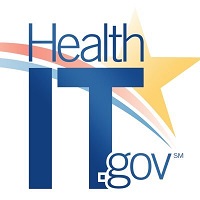 By Mike Berry, ONC
By Mike Berry, ONC
Twitter: @ONC_HealthIT
In August 2019, the Office of the National Coordinator for Health IT (ONC) awarded a cooperative agreement to The Sequoia Project to serve as the Recognized Coordinating Entity (RCE) to support implementation of the Trusted Exchange Framework and Common Agreement (TEFCA). The Sequoia Project has made great strides in meeting the goals and objectives outlined in the Notice of Funding Opportunity. To keep this momentum going, ONC has committed approximately $1.1 million in year-two funding to our cooperative agreement with The Sequoia Project. This funding will support RCE activities from August 2020 to August 2021.
Under the cooperative agreement, the RCE is responsible for developing, updating, implementing, and maintaining the Common Agreement and the Qualified Health Information Network Technical Framework (QTF). The RCE will also work with ONC to designate and monitor the Qualified Health Information Networks (QHINs) that will facilitate nationwide interoperability. The RCE continues to gather input from various health IT partners and stakeholders in order to develop the Common Agreement Draft – Version 1, which is expected to be ready for ONC review later this year.
Highlights of RCE Accomplishments to Date
- Launched a public website for sharing information regarding the RCE’s work and opportunities for stakeholder engagement: sequoiaproject.org.
- Developed a comprehensive stakeholder engagement strategy and work plan that will be inclusive of all stakeholders.
- Hosted twenty-seven public stakeholder engagement calls to provide a status update and to seek input on the development of the RCE’s deliverables.
- Continued development of the draft Additional Required Terms and Conditions (ARTCs), which are the necessary terms for an effective, operational data sharing agreement and complement the Minimum Required Terms and Conditions in development by ONC.
- Continued development of the draft Qualified Health Information Network (QHIN) Technical Framework (QTF), which describes the technical and functional requirements for electronic health information exchange between QHINs.
- Launched a Common Agreement Work Group that will help the RCE develop the Common Agreement Draft Version 1 for ONC review.
What’s planned for the RCE in Year 2 (08/2020 – 08/2021)
- Finalizing the RCE’s draft of the Common Agreement Version 1 and QTF Version 1.
- Developing draft Standard Operating Procedures for operationalizing the Common Agreement.
- Establishing processes to identify and monitor QHINs.
- Determining reporting metrics for QHINs.
- Scheduling ongoing public stakeholder feedback sessions to obtain stakeholder feedback on the draft ARTCs and QTF.
The Goal: Widespread Data Sharing
Working to ensure the nationwide interoperability of electronic health information is critical. The TEFCA can help ensure that health information networks, healthcare providers, health plans, public health, and many more stakeholders have secure access to their electronic health information when and where it is needed most. ONC is excited to support the RCE to continue its efforts to operationalize the Common Agreement and support the nationwide network-to-network exchange of electronic health information.
Get Involved
We encourage stakeholders to participate in the RCE’s information sessions and you can keep apprised of these meetings by adding your name to the RCE’s contact list.
About TEFCA
In the 21st Century Cures Act (Cures Act), Congress directed the Department of Health and Human Services to advance the trusted exchange of electronic health information among health information networks through the TEFCA. The Cures Act’s focus on trusted exchange is an important step toward fostering transparency and competition throughout the healthcare delivery system. It does this by addressing the technical barriers and business practices that impede the secure and appropriate sharing of electronic health information.
This article was originally published on Health IT Buzz and is syndicated here with permission.
